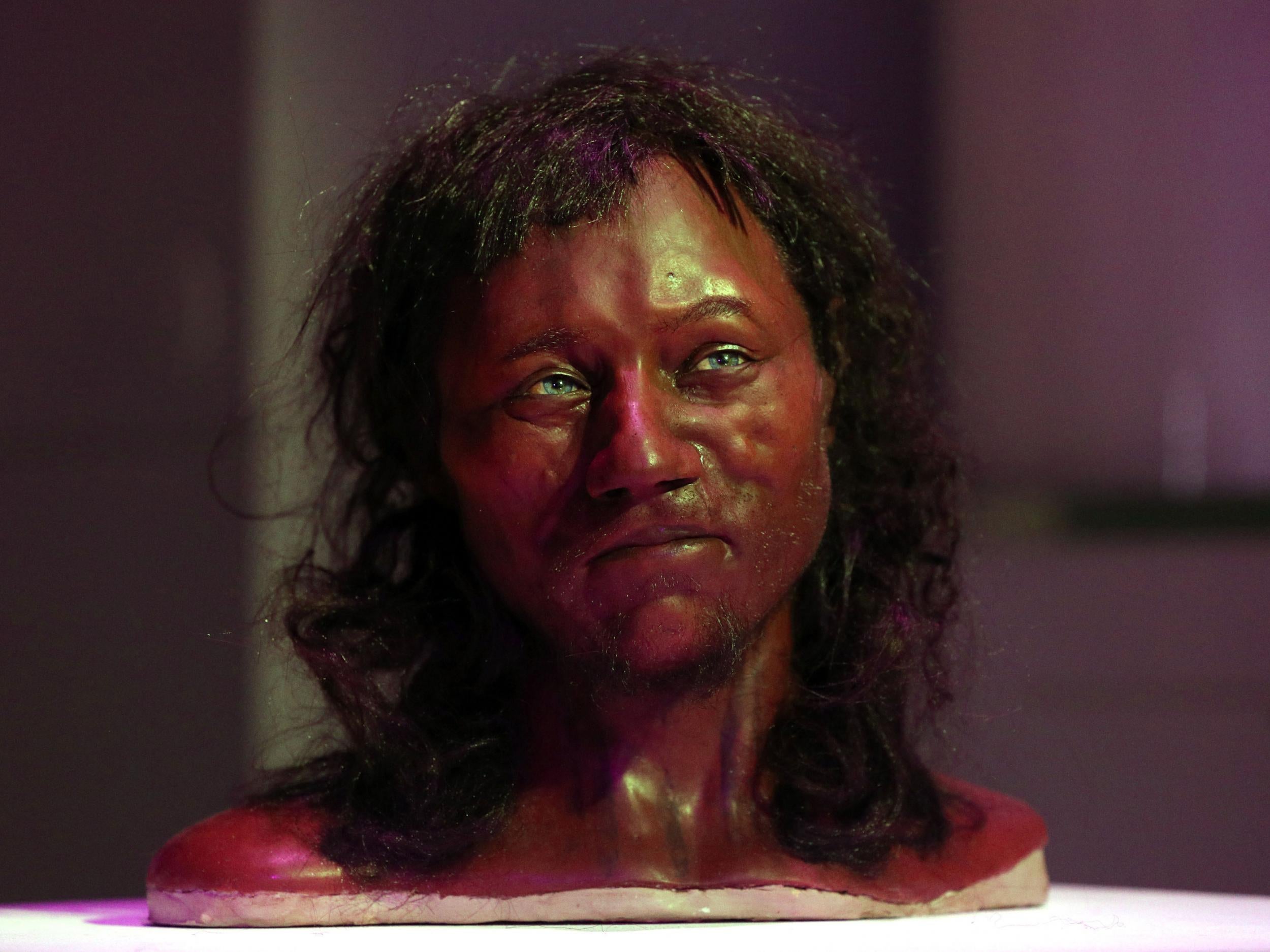Cheddar Man seems like the punchline to a very long joke about our obsession with racial identity
Unesco issued a statement in 1950 asserting that all humans belong to the same species and that ‘race’ is not a biological reality but a myth. Unfortunately, not a lot of people seem to have gotten the memo

The discovery that Britain’s oldest complete skeleton, Cheddar Man, had dark curly hair, blue eyes and brown skin is just too perfect.
Has race ever mattered as much as it does in 2018? At a time when post-Brexit-era Britain is questioning its decades-long experiment in multiculturalism and Trump’s America seems headed towards an immigration policy that favours Norwegians of all professions, and deports black and brown people en masse, it certainly seems like it hasn’t.
This feels like the punchline to a very long, very cruel joke about humanity’s obsession with racial identity.
Steven Clarke, director of The First Brit, the Channel Four documentary about Cheddar Man, put it succinctly: “I think we all know we live in times where we are unusually preoccupied with skin pigmentation.”

Jo Marney, ex-girlfriend of the Ukip leader, balked at the marriage of Prince Harry to black American actress Meghan Markle, claiming that Markle’s black American heritage will “taint” the British royal family. Stephen Miller, the 30-year old chief architect of Trump’s immigration policy, has written that “worshipping at the altar of multiculturalism” has undermined American culture and ignored America’s “unique and glorious history of settlers, pioneers and frontiersman”. Miller neglected to mention the black American slaves, the Chinese railroad workers, or the Mexican vaqueros without whom the Westward Expansion would not be possible.
Racial purists in both Britain and America have long warned that an influx of immigration from brown and black countries would result in race mixing, shifting demographics and an inevitable extinction of the white race. Yet in the case of Cheddar Man, it seems like the opposite happened. Cheddar Man’s dark-skinned, blue-eyed offspring likely bred with pale-skinned, dark-eyed people who migrated to Britain from the Middle East. Adrian Targett, a history teacher from Somerset who is white by any definition of the word, is one of Cheddar Man’s last living descendants.
As a Bangladeshi-American journalist who moved to the north of England last year for graduate school, my views on our current post-Trump, post-Brexit reality are both complicated and entirely predictable. Americans have long felt superior to the British due to our nation’s belief that biology does not equal destiny. In America, unlike Britain, it doesn’t matter who your parents are or where you were born. America’s rejection of the British aristocracy, of earning titles and acquiring land by privilege of birth, is aligned with this belief. But as most people of colour and women in America can tell you, biology can very much be your destiny. Even with decades of racial progress, strides in gender equality and civil rights, there’s no denying this fact, even in 2018. Especially not after the election of Trump, a billionaire son from a wealthy family who ran his campaign on a pro-nativist, anti-immigrant platform.
The lesson we can learn from the Cheddar Man story? It’s the same one that geneticists and biologists have been trying to teach us for years. The United Nations Educational, Scientific and Cultural Organisation (Unesco) issued a statement in 1950 asserting that all humans belong to the same species and that “race” is not a biological reality but a myth. Unfortunately, not a lot of people seem to have gotten the memo.
Cheddar Man is just the most recent example that ancestry does not equal biological destiny. Brag about your racial purity all you like, but there’s not a single human being alive whose genetic makeup hasn’t been altered by mass migrations, slavery, conquests from foreign empires, plagues, droughts, or any other factor that forced you not to just stay put in your native land. Any black American who can count slaves and slaveholders as ancestors can tell you that. There are blondes living in Oklahoma with Cherokee roots and Mexican-Americans whose great grandfathers were Irishmen. For visual proof, look at this group photo of all the descendants of President Thomas Jefferson and his slave mistress, Sally Hemings. Mixed ancestry isn’t new in 2018, wasn’t new in 1988 and, as it turns out, wasn’t new in Stone Age Britain.
Join our commenting forum
Join thought-provoking conversations, follow other Independent readers and see their replies
Comments
Bookmark popover
Removed from bookmarks